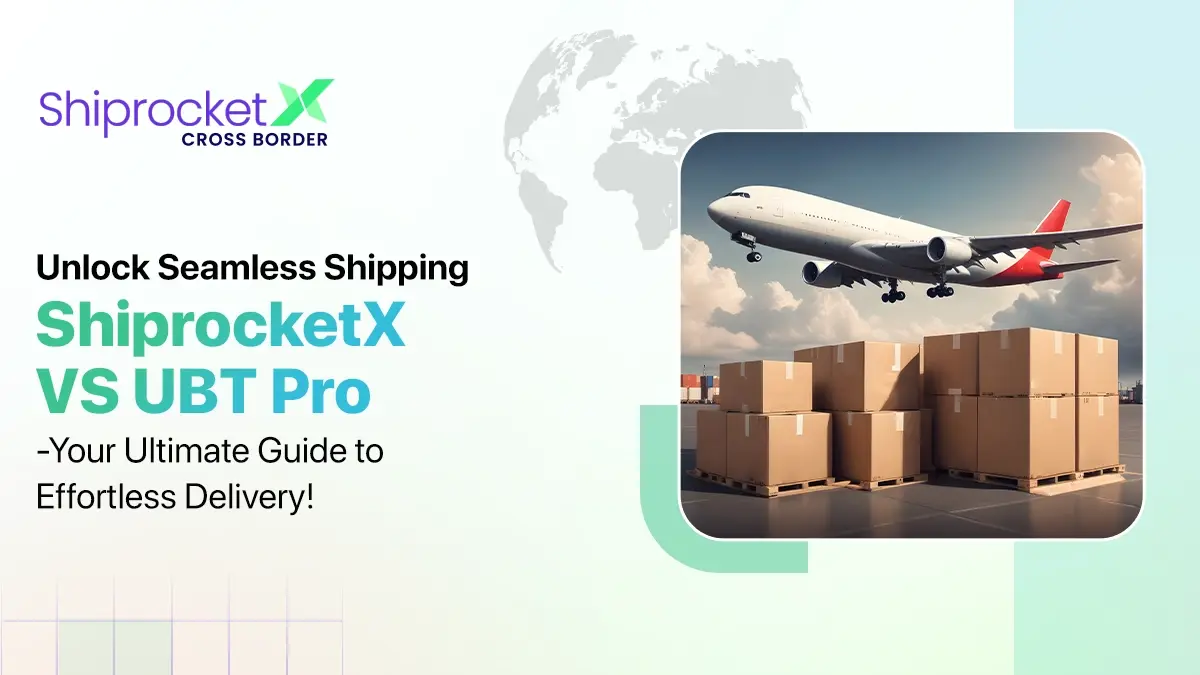How to Set Up Your Import Export Business from Home in India
Since the inception of eCommerce, the import and export business has been quite lucrative in India. It allows small companies to reach and cater to the global audience. The recent times, have seen a surge in the growth of export and import of goods and services.
Many small and medium-level entrepreneurs kickstart their import-export business right from the comfort of their homes or small office spaces. The rise in popularity of these businesses is also influenced by favourable economic policies. If you’re a budding entrepreneur, it’s crucial to understand the procedures and necessary documentation to start import export business in India. Let’s understand the steps involved in the process and help you understand the various guidelines associated with the process.
Getting Started with Registering and Opening Import Export Business
To start import-export business in India from home or office, you need to understand the import and export guidelines. Here are some essential guidelines you must adhere to in order to commence international trade and run it efficiently:
PAN (Permanent Account Number) Card:
You need to have a PAN card issued by the Income Tax Department for registration. This is required to maintain the record of your company’s financial transactions. It serves as a proof of authority as you begin in importing and exporting.
Register Your Firm:
You need to get your business registered with the Ministry of Corporate Affairs, Government of India, irrespective of whether it’s a sole proprietorship, in partnership, private limited company, or LLP.
You can hire a lawyer to help you with the company registration process. You also need to obtain a Service Tax registration or a VAT registration certificate.
Open a Current Bank Account:
You have to open a current bank account to conduct an import export business. This is the account where all your business funds will be deposited. All your payments to the vendors and staff members will be done from this account.
Obtain An Import Export Code (IEC):
The import-export code issued by the Director General of Foreign Trade is mandatory to start an export-import business in the country. You have to apply for it on the DGFT website.
Here is the list of documents required to apply for IEC:
- Getting A Registration-cum-Membership-Certificate (RCMC): Once you get the IEC, you need to obtain the Registration-cum-Membership-Certificate (RCMC) granted by the Export Promotion Councils. You can obtain the certificate from any one of the 26 export promotion councils. After you get the IEC and RCMC, you can start import export business in India.
- Compliance with Different Trade Laws: You can import only those products that comply with section 11 of the Customs Act (1962). They must also comply with the Foreign Trade Development and Regulation Act (1992) and the latest Foreign Trade Policy.
- Procurement of Licenses: If the goods you plan to trade require an import and export license, then you must apply for the same to the DGFT. This license is valid for 18 months for trading raw materials, spare parts, and consumable goods and for 24 months for trading capital goods.
- Register with the Indian Chamber of Commerce: You must register with the Indian Chamber of Commerce (ICC) to export goods. The organisation issues a non-preferential certificate of origin to certify that the exported goods are manufactured in India.
FEMA Guidelines on Import and Export
If you plan to start an import-export business in India, you must understand FEMA guidelines. They have been devised to help businesses regulate and manage foreign exchange. Here is a look at these guidelines:
FEMA Guidelines for Imports
- Businesses and individuals involved in import and export can remit up to USD 2.5 lakh overseas annually. This can be done without any prior approval from the RBI. However, approval from the RBI is mandatory if the remittance amount goes beyond USD 2.5 lakh.
- Importers are required to clear the payment for imported goods within nine months. Payments for imports should be made through authorised banking channels. Importers can make advance payments, direct payments, or payments against documents.
- Importers must submit necessary documents, such as import bills, invoices and bills of entry, to the authorised banks within the given timeline.
- It is important to ensure that the information in the reporting system and the Bill of Entry details tally.
FEMA Guidelines for Exports
- Exporters must declare the full value of the export goods in the prescribed forms and submit them to the authorised dealer.
- FEMA discourages risky or guess-based transactions. It emphasises the need for sensible financial decisions.
- Exporters are prohibited from paying for counterfeit or pirated goods and must respect intellectual property rights.
- Exporters must limits payments to countries under international sanctions to ensure compliance with global regulations.
- FEMA restricts investments in certain sensitive or restricted areas. Thus, avoid putting money into these off-limits sectors.
- Exporters must not make any transactions linked to illegal or suspicious activities and ensure all their financial dealings are legitimate.
- FEMA clearly outlines permissible foreign exchange trades. Exporters are advised to adhere to approved transactions only.
- FEMA prohibits using funds for gambling or betting. This is done to ensure money is spent on legitimate purposes.
Seek Professional Guidance
Hire An eCommerce Shipping Company
Hire a logistics company that would be responsible for delivering your products to customers worldwide. Shiprocket is a eCommerce enabler that helps such businesses by providing them multiple shipping partners to ship their products internationally at the cheapest shipping charges. Shiprocket is a comprehensive solution for direct commerce, trusted by over 1.5 lakh brands. It provides the cheapest shipping rates, widest reach, and the best customer service that your business needs.
Contact A Customs Clearing Agent
You might need to take the assistance of a customs clearing agent who will guide you through the process of getting your shipment cleared at the ports, customs duty charges, transportation charges, etc., involved in the import-export business.
Import Export Business Opportunities for Entrepreneurs
Starting an import-export business can be a great way for eCommerce businesses to expand. The import-export economy is booming as the government has set up several schemes to benefit entrepreneurs.
Businesses can explore various avenues. They key is to understand the import export guidelines and select the right business avenue considering your knowledge, calibre, and market condition. Some examples of popular import-export businesses include:
Investing in Online Marketplaces
Online marketplaces are an integral part of the import-export businesses. Investing in online marketplaces is a smart move for starting an import export business in India. These platforms provide access to a vast global audience. They allow you to showcase your products to potential buyers and suppliers worldwide. Moreover, these platforms offer tools to conduct market analysis, get customer feedback, and ensure secure payment processing. They make international trading easier.
Exploring International Markets
Businesses can export unique items from their country and import products in demand from other countries. Thorough market research and analysis can help you figure out these products. For example, if you sell Kashmiri shawls, you can export them to countries with cold climates around the world.
Promoting and Selling Other Products
Look for business opportunities by selling the products that you don’t manufacture. You can collaborate with other manufacturers to sell their items in the international markets. For example,
- Tea and Tobacco: Both are widely produced in India and have a good demand in the international market.
- Leather and Medical Products: India has a well-developed leather industry and you can export products, such as wallets, belts, toys, handbags, and so on. India is also becoming a major exporter of medical equipment like gloves, gauze, bandages, face masks, and so on.
Conclusion
Engaging in export and import businesses can open up new opportunities for your company when approached with careful planning and attention. It is important to learn how to start an import export business from home and office to manage the process efficiently. By understanding key import and export guidelines, conducting strategic market research, and building strong supplier and customer networks, you can operate successfully in the international market.









I have been reading out some of your posts and i can state pretty good stuff. I will surely bookmark your site.